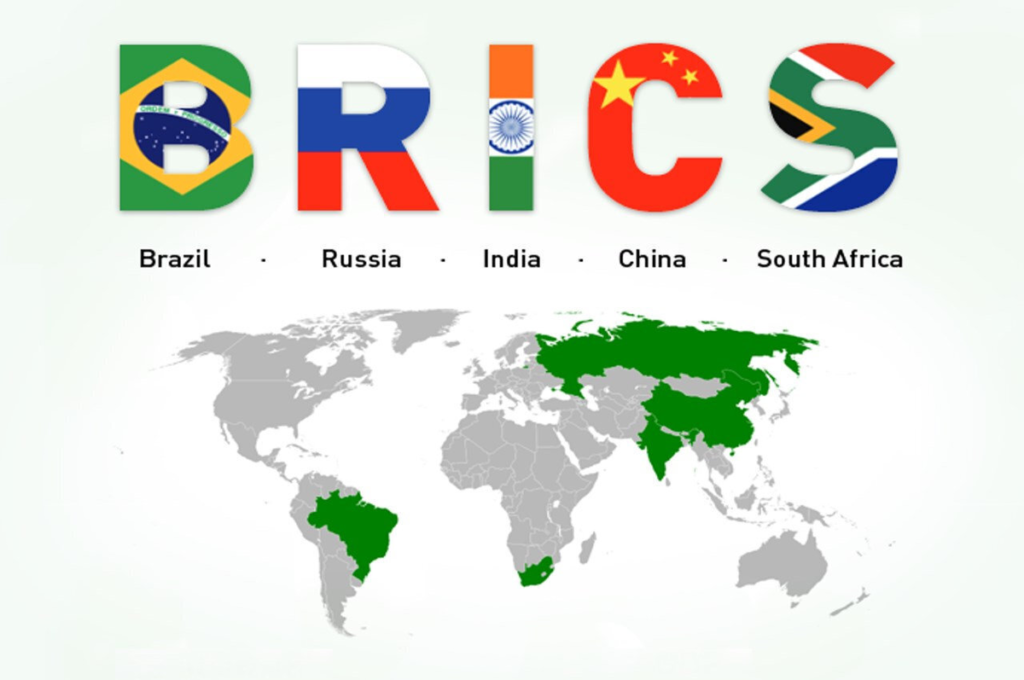In Argentina’s presidential palace, Javier Milei is bringing a throwback approach to government, both in his style and his policies. Known for his outspoken anti-communist stance, love of the Rolling Stones, and leather-jacketed public appearances, Milei’s rhetoric and economic policies evoke an era of U.S.-aligned neoliberalism. With sweeping cuts to public spending, an aggressive push to privatize national industries, and pledges to break ties with countries like China and Brazil, Milei’s agenda is clear: realign Argentina with U.S. interests. But in a global economy vastly different from the Cold War period, his approach risks not only deepening Argentina’s economic dependency but also ignoring the lessons of Argentina’s own economic history. Milei’s policy decisions have caused domestic debate and international attention. While he believes that this shift will attract foreign investment, tame inflation, and restore Argentina’s position in the global financial landscape, his critics argue that the pursuit of U.S. favor mirrors a dangerous pattern from Argentina’s past: relying heavily on one foreign power at the expense of economic sovereignty and stability.

Breaking from BRICS and Turning to Washington
True to his campaign promises, Milei has made major changes in Argentina’s foreign policy direction. He began by downgrading Argentina’s ties with countries seen as U.S. rivals, such as Venezuela and Cuba, and he has even signaled a desire to distance Argentina from its top trade partners, Brazil and China. Although he has maintained some trade links with these nations, Milei has effectively shut down Argentina’s membership bid for BRICS, the economic bloc that includes Brazil, Russia, India, China, and South Africa, which was championed by the previous administration.
Milei’s neoliberal shift is evident in his domestic policies, as well. His government has moved to sell off state assets, invite foreign ownership of critical resources in Patagonia, and cut down on public services in the name of fiscal responsibility. He has even floated the idea of dollarizing Argentina’s economy, abandoning the peso in favor of the U.S. dollar, which he argues will curb inflation. While Milei’s allies see this as a pathway to economic stability, many Argentines fear the long-term implications of handing over control of their currency.

This policy orientation has earned Milei high-profile engagements with U.S. political figures and financial institutions. He recently spoke at the World Economic Forum in Davos, held discussions with IMF officials, and welcomed a visit from U.S. Secretary of State Antony Blinken, who praised Argentina’s “business potential” and the new government’s commitment to reducing fiscal deficits. Milei also attended the Conservative Political Action Conference, where he met former U.S. President Donald Trump, who encouraged him to “Make Argentina Great Again.”
Lessons Ignored: Argentina’s History of Economic Dependency
Argentina’s path toward dependency on foreign powers has a long and troubled history. In the late 1800s, the country’s rapid economic growth was closely tied to British investment, which funded railways, ports, and agricultural exports.

Yet this reliance came with costs: British firms controlled critical infrastructure, reaped profits from natural resources, and saddled Argentina with substantial debt. When the flow of British capital dried up after World War I, Argentina’s economy suffered, leaving it vulnerable to repeated financial crises throughout the twentieth century.
More recently, Argentina’s relationship with the United States has followed a similar pattern. In the 1970s and 1980s, U.S.-backed policies helped install a dictatorship that liberalized Argentina’s financial markets while racking up enormous foreign debt. This debt, coupled with severe economic mismanagement, led to hyperinflation and, eventually, the 2001 economic collapse. For many Argentines, Milei’s turn toward U.S.-centric policies echoes this painful history, evoking fears that the country may once again fall into a cycle of dependency and exploitation.
This dependency was underscored in the 2018 IMF bailout under President Mauricio Macri, a move that provided a record-setting loan to Argentina but failed to deliver stability. Eighty-three percent of the loan funds were used to pay off previous debt, rather than stimulating economic growth. By 2023, inflation was back at staggering levels, casting doubt on the effectiveness of IMF-led austerity measures.
Vulnerabilities and the Potential Impact of Milei’s Policies
Milei’s administration has already faced criticism for prioritizing foreign corporate interests over Argentina’s economic resilience. His focus on attracting U.S. investment has led to attempts to privatize oil and mineral reserves, especially in Patagonia, inviting foreign corporations to take control of Argentina’s most valuable resources. Many economists worry that these decisions could leave Argentina without the economic tools necessary to maintain stability, especially if U.S. interest in the region shifts.
Moreover, by focusing so heavily on the U.S. while distancing Argentina from China and Brazil — its two largest trading partners — Milei risks isolating Argentina from alternative sources of trade and investment. While Milei hopes that Washington will provide the investment needed to stabilize Argentina, history suggests that the U.S. will prioritize its own economic interests, as it has repeatedly done in Latin America. This pattern of U.S. influence — benefiting from resource extraction while leaving economies vulnerable to debt and inflation — does not bode well for Argentina’s future if Milei’s policies continue unchecked.

A Call for Sustainable Economic Sovereignty
Argentina’s experience offers a valuable lesson on the dangers of one-sided alliances and dependency. Milei’s decision to align closely with the U.S. at the expense of more diverse international partnerships could put Argentina back on a path of vulnerability. Meanwhile, the previous administration’s efforts to join BRICS represented a step toward economic diversification, focusing on partnerships that would support Argentina’s growth in key sectors like agriculture, energy, and technology. These BRICS countries, accounting for half the world’s GDP and much of global economic growth, offer both markets for Argentina’s exports and sources of investment in infrastructure and technology.
Milei’s approach reflects a narrow vision of economic progress — one that prioritizes appeasing international creditors and privatizing resources over sustainable growth and domestic empowerment.
For Argentina to achieve long-term stability, its leaders must consider alternatives that foster balanced relationships, ensuring that foreign investments contribute to national development rather than perpetuating cycles of extraction and debt.
As the world becomes increasingly multipolar, Argentina has opportunities to engage with a range of global partners. Instead of revisiting an outdated dependency model, the country can pursue economic strategies that prioritize equitable partnerships, value-added production, and self-sufficiency. While Milei may hope to bring Argentina back to an imagined era of greatness, the reality is that prosperity will require a forward-looking approach that values Argentina’s autonomy and long-term interests.

